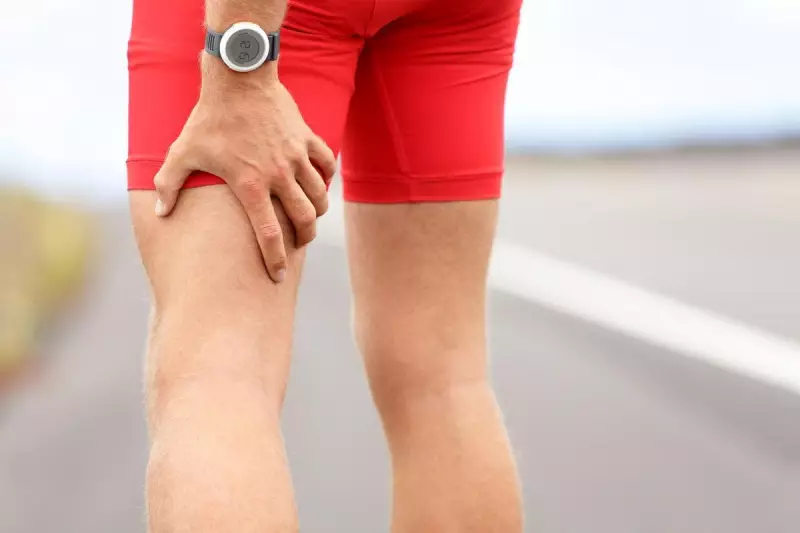
That sudden, excruciating tightening in your calf or foot in the middle of the night or during a workout is a familiar agony for many. But what truly causes these involuntary muscle contractions, and how can we prevent them?
The Mystery Behind the Spasm
Contrary to popular belief, dehydration and electrolyte imbalance are not the sole culprits. Experts now point to a more complex interplay of factors, including muscle fatigue and neurological triggers. When a muscle is overworked, the signals between nerves and muscles can become disrupted, leading to those painful, uncontrollable spasms.
Who's Most at Risk?
While athletes are commonly affected, night-time cramps don't discriminate. They frequently strike those who are less active, particularly older adults. Pregnant women also experience a higher incidence of leg cramps, especially during the later stages of pregnancy.
Immediate Relief: What Actually Works
When cramp strikes, the most effective immediate action is gentle, passive stretching. For a calf cramp, try pulling your toes towards your shin while keeping the knee straight. Applying heat can help relax the tense muscle, while a cold pack may be more beneficial if there's associated inflammation.
Prevention Strategies
Staying adequately hydrated is crucial, but it's only part of the solution. Consider these evidence-based approaches:
- Regular stretching: Incorporate daily stretching routines focusing on commonly affected muscles
- Progressive training: Avoid sudden increases in exercise intensity or duration
- Proper footwear: Wear supportive shoes during the day and consider night splints if cramps occur regularly
- Magnesium supplementation: Some studies suggest benefits, particularly for nocturnal cramps
When to Seek Medical Advice
While most cramps are harmless, persistent, severe, or frequently recurring cramps warrant medical attention. They could indicate underlying conditions such as nerve compression, circulatory issues, or metabolic disorders that require proper diagnosis and treatment.
Understanding that muscle cramps result from multiple factors allows for a more comprehensive approach to prevention and treatment. By addressing hydration, nutrition, muscle conditioning, and lifestyle factors, you can significantly reduce their frequency and intensity.





